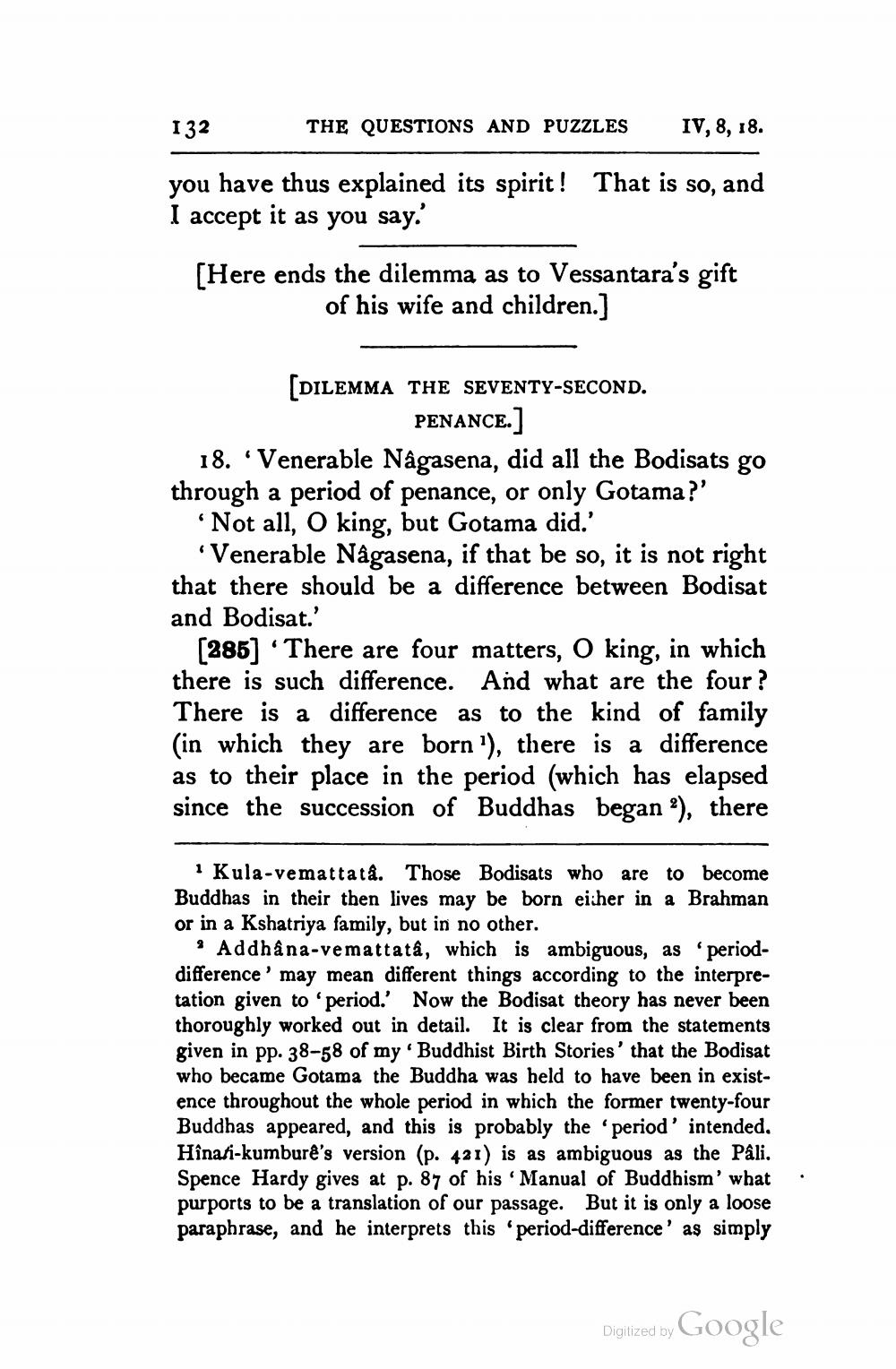________________
THE QUESTIONS AND PUZZLES
132
IV, 8, 18.
you have thus explained its spirit! That is so, and I accept it as you say.
[Here ends the dilemma as to Vessantara's gift of his wife and children.]
[DILEMMA THE SEVENTY-SECOND. PENANCE.]
18. 'Venerable Nâgasena, did all the Bodisats go through a period of penance, or only Gotama?'
'Not all, O king, but Gotama did.'
'Venerable Nâgasena, if that be so, it is not right that there should be a difference between Bodisat and Bodisat.'
[285] There are four matters, O king, in which there is such difference. And what are the four? There is a difference as to the kind of family (in which they are born 1), there is a difference as to their place in the period (which has elapsed since the succession of Buddhas began 2), there
1 Kula-vemattatâ. Those Bodisats who are to become Buddhas in their then lives may be born either in a Brahman or in a Kshatriya family, but in no other.
Addhâna-vemattatâ, which is ambiguous, as 'perioddifference' may mean different things according to the interpretation given to 'period.' Now the Bodisat theory has never been thoroughly worked out in detail. It is clear from the statements given in pp. 38-58 of my ' Buddhist Birth Stories' that the Bodisat who became Gotama the Buddha was held to have been in existence throughout the whole period in which the former twenty-four Buddhas appeared, and this is probably the 'period' intended. Hînati-kumbure's version (p. 421) is as ambiguous as the Pâli. Spence Hardy gives at p. 87 of his 'Manual of Buddhism' what purports to be a translation of our passage. But it is only a loose paraphrase, and he interprets this 'period-difference' as simply
Google
Digitized by




